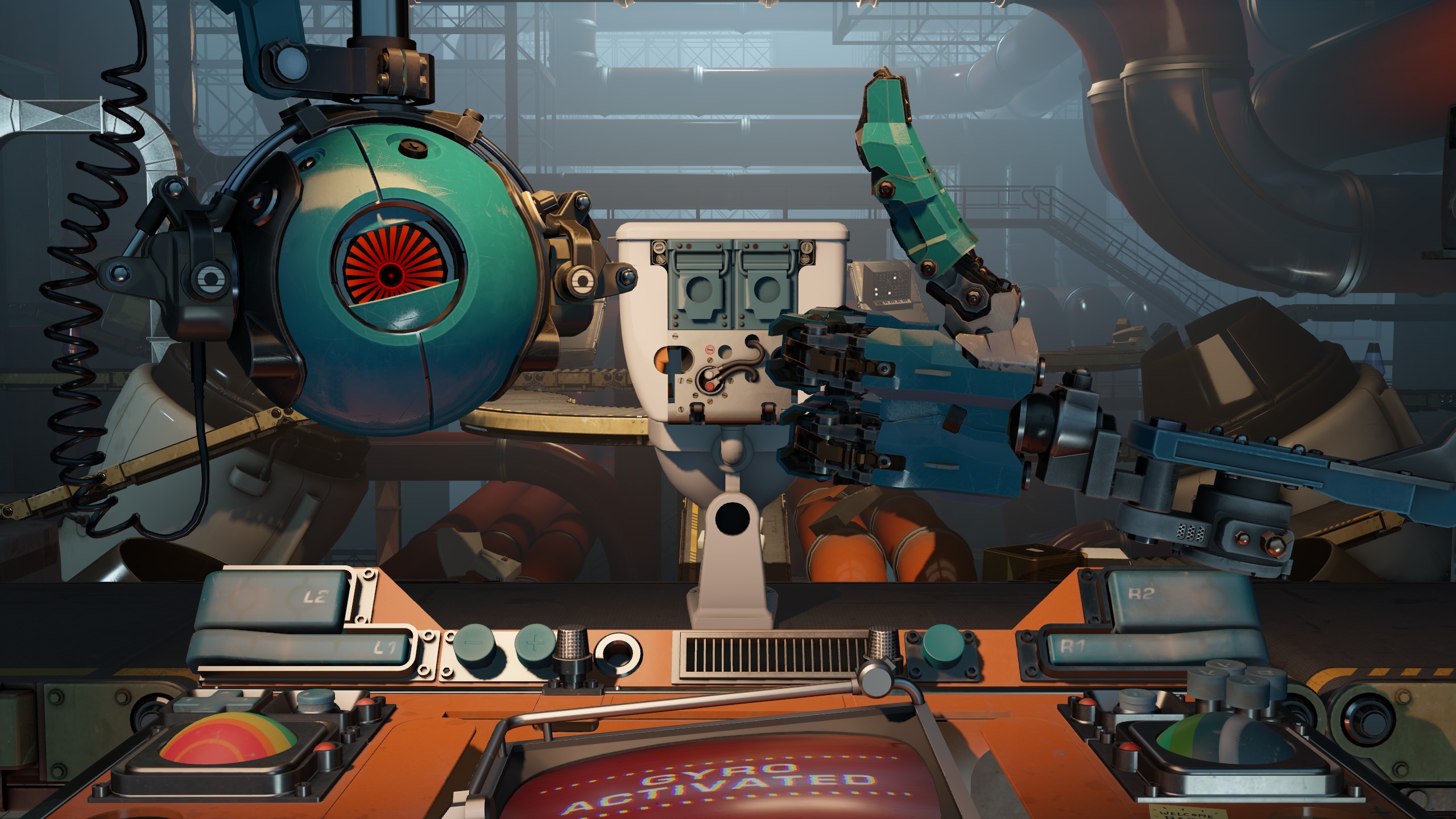Aperture Desk Job code references unannounced Valve projects, including Half-Life: Alyx 2
Including the long-rumoured Source 2 version of Counter-Strike: Global Offensive.

Valve is having a good year so far (and also had a pretty great 2021, thanks)—part of which was the announcement of an unexpected new game, Aperture Desk Job, set in the Portal universe. It's called a 'short' by the developer, free for everyone, and a week after release one dedicated data-hound has sniffed out a breadcrumb trail that seems to reference up to four unannounced (even if rumoured) Valve projects at the developer.
Tyler McVicker has been finding hints in Valve's code for years, and is himself responsible for some of the leaks that this latest discovery seems to confirm (thanks, VGC). The full video is below, and I'll summarise his findings after:
McVicker says he's found description strings relating to "Citadel, some kind of follow up to Half-Life: Alyx, Counter-Strike: Global Offensive’s Source 2 port and a recreation of the previously cancelled Portal paint game."
Obviously all of this has to be taken with an entire shaker full of salt, as while McVicker provides full documentation here, we simply don't know why these references have been left in the game: it could be as simple as re-using some old work, it could be what McVicker thinks it is, or it could even just be Valve developers toying with us.
Citadel has long been rumoured, as has the Source 2 port of CS: GO (some code in a Dota 2 update last year suggested the project is well underway), but a sequel to Alyx would certainly be a surprise. The Portal paint gun game could be a revival, or it could be old code, or it could be nothing.
Citadel is supposed to be some sort of alien-blasting co-op experience: "This appears to be a Combine vs. Rebels, team-based, squad-based, Class-Based, RTS/FPS hybrid," writes McVicker, "built for both Virtual Reality and Pancake Systems."
A particularly interesting element, however, is the bots. Per the documentation provided these are AI-controlled teammates that develop dynamically over the course of a game. Behaviours listed include:
The biggest gaming news, reviews and hardware deals
Keep up to date with the most important stories and the best deals, as picked by the PC Gamer team.
- Behavior can go so far as to have a bot dislike, hate and fear other, specific bots, based on game events. A bot can also have a "nemesis."
- Bots will, over time, mimic the player's behavior in-game.
- A player can "push" bots.
- Bots can, and frequently do, speak to other bots, and the player.
- Bots can hear, see and smell the gamespace, and will react accordingly.
- These bots have a structured “schedule,” that can be interrupted by abilities and other player actions.
- It is not known how these schedules are created.
- These can also be referred to as "patrols."
- Bots have a far superior procedural navigation system; possibly to adjust to a changing playspace.
The references to the other games are not so substantial, merely confirmation that someone, somewhere at Valve once thought about these projects. Valve's commitment to VR at least makes the Alyx project seem plausible, while Counter-Strike: Global Offensive is as successful as ever but it's also a decade old and will eventually need a successor to keep up with the competition.

Rich is a games journalist with 15 years' experience, beginning his career on Edge magazine before working for a wide range of outlets, including Ars Technica, Eurogamer, GamesRadar+, Gamespot, the Guardian, IGN, the New Statesman, Polygon, and Vice. He was the editor of Kotaku UK, the UK arm of Kotaku, for three years before joining PC Gamer. He is the author of a Brief History of Video Games, a full history of the medium, which the Midwest Book Review described as "[a] must-read for serious minded game historians and curious video game connoisseurs alike."

